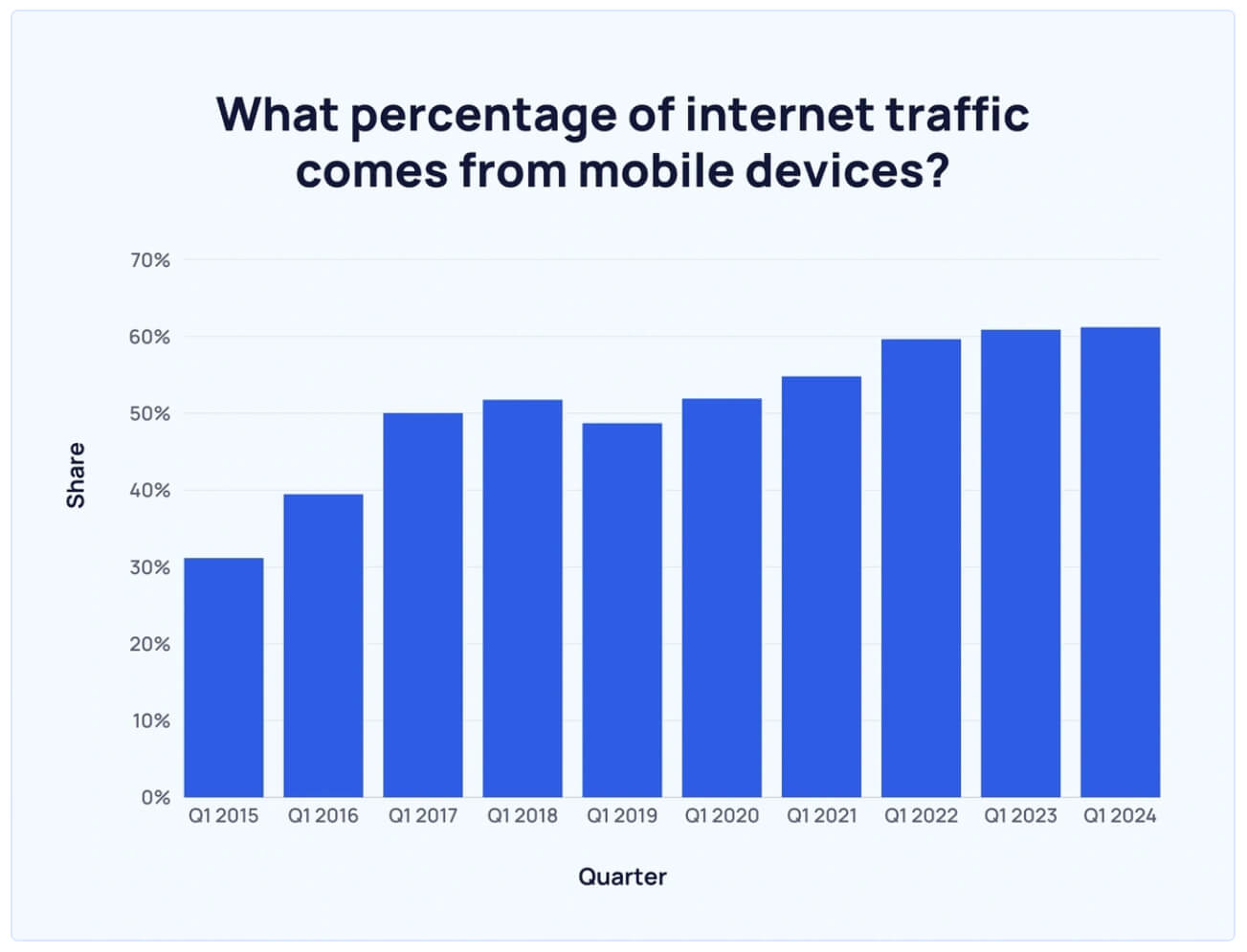August 13, 2024
5 Common SEO Mistakes to Avoid for Ecommerce Websites

In the world of eCommerce, securing a top spot in search engine results is crucial for driving traffic and boosting sales. However, achieving strong SEO performance requires more than just optimizing a few keywords. Many eCommerce websites fall victim to common SEO mistakes that can severely hinder their online visibility and overall success.
In this article, we will explore 5 common SEO mistakes to avoid, helping you improve your site’s ranking and ensure a better user experience for your customers.
1. Neglecting Mobile Optimization
Did you know According to Exploding Topics - the percentage of people accessing the internet via mobile devices has increased from 30% in 2015 to 60% as of 2024.
Mistake:
Many eCommerce sites are not fully optimized for mobile devices, which can hurt their search engine rankings.
Why It’s Important:
With a significant portion of online shopping done on mobile devices, search engines prioritize mobile-friendly websites. Poor mobile optimization can lead to a high bounce rate and lost sales.

2. Ignoring Technical SEO Issues
Technical SEO focuses on improving website speed, security, mobile-friendliness, and user experience.
Mistake:
Overlooking technical SEO aspects like slow page load speeds, broken links, or improper URL structures can negatively impact your site’s visibility.
Why It’s Important:
Search engine bots evaluate these aspects to determine the quality and reliability of a website and whether it's rank worthy on search engine ranking pages (SERPs). Not addressing these issues will affect your site’s ability to rank well.
3. Overlooking User Experience (UX)
User experience design can have a significant impact on revenue growth for businesses. The user experience (UX) of an eCommerce website is crucial to increase online sales. It determines how well users can navigate, find what they need, and enjoy a hassle free purchase experience.
Mistake:
Focusing solely on SEO and ignoring the user experience, such as difficult navigation or poor site design, complex purchase experience and product discovery can drive customers away.
Why It’s Important:
Search engines consider user behavior (like bounce rate and time on site) as ranking factors. A poor UX can result in lower engagement and conversion rates, affecting your SEO efforts.
4. Poor Use of Keywords
The primary objective behind using keywords in marketing is to reach your target audience. The right keyword in the right context can improve your eCommerce websites’ search engine ranking.
Mistake:
Either keyword stuffing (overusing keywords) or not using relevant keywords in product titles, descriptions, and meta tags can harm your site’s SEO.
Why It’s Important:
Keywords are crucial for helping search engines understand the content of your site. Misusing them can lead to penalties or missed opportunities to rank for terms that potential customers are searching for.
5. Thin or Duplicate Content
When search engines bots crawl multiple URLs on your website and it has thin or duplicate content - it can make it trickier to know which page to rank for a search query.
Mistake:
Using the same product descriptions across multiple pages or copying descriptions from manufacturers results in thin or duplicate content.
Why It’s Important:
Search engines penalize sites with duplicate content, which can lead to lower rankings. Unique, informative content enhances user experience and helps in ranking for relevant keywords.
Conclusion
Avoiding these common SEO mistakes is essential for any eCommerce website aiming for long-term success. By focusing on mobile optimization, addressing technical SEO issues, creating unique content, enhancing user experience, and properly utilizing keywords, you can significantly improve your site’s visibility and conversion rates. In the ever-evolving digital landscape, staying ahead of these SEO pitfalls will give your eCommerce business the competitive edge it needs to thrive.
Ready to Transform Your E-commerce Business? Try Happy Clicks Today!
Tagged As
SEO


